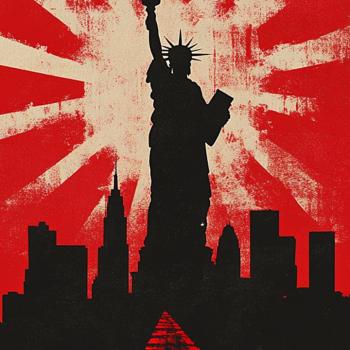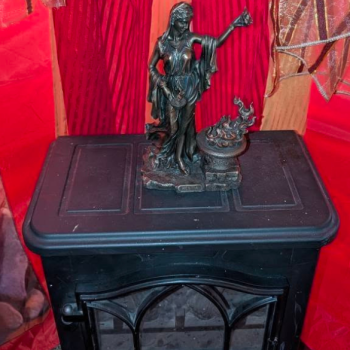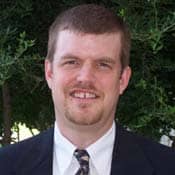Tensions over church-state separation are mounting across America as courts increasingly require the erasure of religion from public spaces. A recent incident at a Campbell County Board of Supervisors meeting in Rustburg, Virginia, illustrated the growing furor: when advised that a July 29 ruling by the 4th Circuit Court of Appeals discouraged sectarian prayers at public meetings, the board made clear their contempt for the court's judgment. Chairman Steve Shockley addressed the audience and said, "If you're offended by the name of Christ or Lord and Savior, you are welcome to leave the room."
Shockley's response was rude. But his frustration—indeed, his alarm—is understandable. How can judges forbid anyone, even elected officials, from saying certain religious words?
Rural Rustburg is a short drive from Red Hill, the last home of Patrick Henry, and Poplar Forest, Thomas Jefferson's lesser-known estate to the south of Monticello. What would Henry and Jefferson think about a court banning officials, or even clergy, from uttering Jesus's name in public meetings?
Patrick Henry (the subject of my next book) and Thomas Jefferson disagreed on many issues, including the nature of religious liberty. Henry, along with George Washington and John Adams, believed that state governments should financially support churches. As the moral bulwarks of the republic, churches deserved public aid. Henry, however, suggested that Virginia could move beyond its exclusive colonial-era "establishment" of the Anglican Church and allow taxpayers to choose the church which would receive their mandated tithes.
Jefferson and James Madison, supported by evangelical Baptists, disagreed with even this plural establishment and argued that the government should get out of the business of promoting any denomination. This view won the day in Virginia, and in the framing of the Bill of Rights, leading to the First Amendment's ban on a (national) established church, and its guarantee of free exercise of religion.
Neither Jefferson nor Henry, however, could have imagined the day when judges would construe the First Amendment as restricting the religious speech of elected officials, private citizens, or clergy. Both Patriots routinely referred to matters of faith in their great speeches and writings. Henry's "Liberty or Death" speech repeatedly quoted the Bible, especially the prophet Jeremiah. Jefferson, deist though he was, felt comfortable speaking of the God who created us equal, and who endowed us with our unalienable rights. Jefferson's First Inaugural Address hailed the benefits of Americans' "benign religion, professed indeed and practised in various forms, yet all of them inculcating honesty, truth, temperance, gratitude and the love of man." As President, Jefferson routinely attended church services in government buildings, with Christian pastors not only praying, but preaching in Jesus's name.
Jefferson attended such a service in Congress's chambers the same weekend in 1802 that he sent the famous "wall of separation" letter to evangelical Baptists in Danbury, Connecticut. Ironically, this is the letter which secularist lawyers and judges now interpret as the last word on the First Amendment's religion clauses, claiming that the letter reflects the Founders' preference for a strict separation of church and state and the removal of religious symbols and words from public life.
As I recently wrote regarding attempts to legally prohibit Texas Governor Rick Perry's prayer rally in Houston, this kind of church-state extremism often puts traditional believers on the defensive, breeding the attitude exhibited by Steve Shockley at the Campbell County meeting. Americans have the right to use Jesus's name (or the name of other religious figures, for that matter) in public spaces. But having a right to do something does not make it prudent or winsome. On this point I would agree with the ACLU and other secularists: public meetings like those of the Campbell County Board of Supervisors are not appropriate places for sectarian fulminations. But there's a difference between speech that is inappropriate, and speech that should be constitutionally banned. Violating Americans' right to free speech and free exercise of religion is not the way to address the poor manners of people like Mr. Shockley.
8/30/2011 4:00:00 AM





